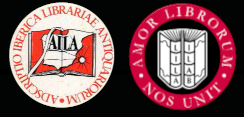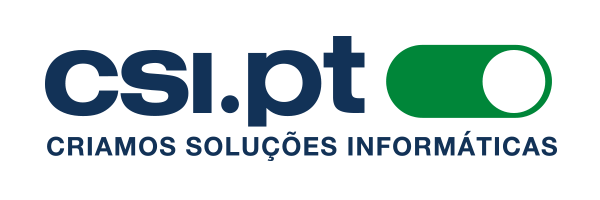


Home |
Temáticas |
Catálogos |
Pedidos |
  |  |
|||||||
|

|
RUGENDAS. (Johann Moritz) HABITANTE DE GOYAS, QUADRO A ÓLEO PINTADO SOBRE MADEIRA. |
|
|
Clique nas imagens para aumentar. PERIER. (Alexandre) DESENGANO DOS PECCADORES.necessario a todo genero de pessoas, utilissimo aos missionarios, e aos Prégadores desenganados, que só desejão a salvação das Almas. Dedicado ao sereníssimo senhor D. Manoel, Infante de Portugal. Escrito pelo R.P. Alexandre Períer Da Companhia de Jesus, e Missionario da Província do Brasil accrescentado com huma Addiçam de hum caso horrivel nesta terceira Irnpressão, Por Lourenço Morganti, Bibliothecario do Illustrissimo, e Reverendissimo Senhor Patriarch I. de Lisboa Occidental. Lisboa Occidental, Na Officina de Antonio Pedrozo Galram MDCCXXXV [1735] In 8º gr. de 20x15 cm. Com [xxii]; 458 págs. Encadernação da época, inteira de pele, cansada, com nervos e ferros a ouro desvanecidos na lombada. Ilustrado com 17 magníficas gravuras abertas por Debrie em chapa de metal: 1 portada e 1 anterrosto abertos com motivos alegóricos, 14 gravuras para cada um dos 14 discursos da obra e 1 gravura adicional no final assinada "J. S: Matheu Scup". A bibliografia consultada apenas refere a gravura alegórica com as armas reais de Portugal e 14 gravuras, sem nunca referir frontispício gravado em que consta o título: DESENGANNO DE PECCADORES. Assinado: G. F. L. Debrie dir. et. Scup. 1735. As gravuras são imprescindíveis para estudar a arte do célebre gravador Debrie, que foi autor de grande número de ilustrações no estilo elegante e gracioso da época, demonstrando nestas gravuras a sua capacidade para adaptar o seu estilo à realização de obras com características pré-românticas. Exemplar com assinatura de posse coeva 'De Fr. Augusto das Chagas' e com falta da folha de rosto e da última folha que é também a última do índice. 2ª edição raríssima, desta obra da Brasiliana, pouco conhecida e estudada, que foi proíbida e mandada destruir por edital da Real Mesa Censória em 1771, e da qual existem 4 edições de 1724, 1735, 1752 e 1765. Inocêncio só descreve a 1ª edição de Roma, 1724. Livro de grande importância, para o estudo do governo do Marquês de Pombal, para a história da gravura em Portugal, das técnicas de catequização da Companhia de Jesus, das missões no Brasil e da censura em Portugal. O Desengano dos Peccadores é um livro de devoção semelhante a muitos outros publicados naquela época, contendo veementes descrições do Inferno com as quais ameaça os pecadores, descrevendo os tormentos que os esperavam no Inferno e citando os escritos de todos os Santos da Igreja e dos Evangelistas. O autor considera-o necessário para todos os tipos de pessoas e muito útil aos missionários. O que distingue esta obra de outros livros de devoção é estar ilustrado com gravuras de grande qualidade, representando os tormentos dos pecadores no inferno, facto que só ocorre nesta edição e que se deveu ao autor ter conseguido um patrocínio para a realização das gravuras que, na época, eram muito caras. O Padre Perier escreve, na introdução, que quando se encontrava no Brasil levava sempre consigo gravuras aclaradas pela cor do fogo – que representavam o Inferno e que ele mostrava aos índios com grande sucesso. O efeito que causavam era tão forte que ele resolveu ilustrar a sua obra com algumas delas. Essas gravuras são de facto horripilantes. Retratam entidades maléficas deformadas e pavorosos monstros atormentando os pecadores no meio do fogo dos infernos. As gravuras constituem uma das maiores curiosidades do livro. A Real Mesa Censória foi criada, por Carta de Lei de 5 de Abril de 1768, integrada na política de concentração de poderes e de regalismo que caracterizaram a acção do Marquês de Pombal. Esta instituição de censura Pombalina já tinha proibido a obra por edital de 22 de Abril de 1771 e renovou a proibição no mesmo ano por Edital de 10 de Junho, que inclui outras obras. A proibição destas obras religiosas devia-se ao facto de não estarem de acordo com as tendências de origem francesa e iluminista de racionalismo estreito, que caracterizavam o Portugal Pombalino. Na verdade elas não tinham qualquer erro ou desvio da doutrina, pois tinham sido todas aprovadas pela Inquisição e pelos Bispos, nas datas em que foram publicadas. Já foi levantada a hipótese da proibição do Desengano de Peccadores, além do facto do seu autor ser jesuíta, se dever a influências dos grandes proprietários do Brasil, pelo facto de o autor defender, na parte 10ª da obra, que os proprietários de escravos cometiam grandes pecados e serão atormentados para sempre no inferno. Alexandre Perier (Turim 1651-1736) Padre da Companhia de Jesus foi durante décadas missionário no Brasil. Inocêncio 1, 39, VIII, 41, descreve a edição de 1724 e a refere a 2ª edição. Monteverde 4114. Borba de Moraes. Bibliogr. Bras. 2, 660. Ernesto Soares. História da Gravura Artística em Portugal. Vol. I, nº 639, pág. 211
Binding: Contemporary full calf a bit worn, with raised bands and faded gilt tools on spine. Illustrated with 17 magnificent metal plate engravings by Debrie: 1 half-title and 1 frontispiece with allegoric motifs, 14 engravings for each of the 14 speeches of the work, and 1 additional engraving at the signed "J. S: Matheu Scup". The consulted bibliography just mentions the allegoric figure with the coat of arms of the King of Portugal and 14 engravings, without ever referring the engraved frontisiece in which there is the title “DESENGANNO DE PECCADORES”, signed “G. F. L. Debrie dir. et. Scup. 1735”. These engravings are fundamental for the study of the art of the famous engraver Debrie, author of many illustrations with the elegant and graceful style of that time, showing in these engravings his ability to adapt his style to carry out works with pre-romantic characteristics. Copy with contemporary ownership signature 'De Fr. Augusto das Chagas' and missing the title page and the last leave which is also the last of the index. Very rare second edition of this Brazilian work, not very known or studied, which was forbidden and ordered to be destructed by a public notice of the Real Mesa Censória [Royal Censorship] in 1771, and of which there were four editions: 1724, 1735, 1752 and 1765. Inocêncio only describes the first Roman edition from 1724. A book of great importance for the study of the Government of the Marquis of Pombal, for the history of engraving in Portugal, the catechizing techniques of the Company of Jesus, the missions in Brazil, and the censorship in Portugal. The Desengano dos Peccadores [Bitter experiences of the sinners] is a devotional book similar to many published at the time and contains strong descriptions of Hell , menacing the sinners with them by describing the tortures that waited for them in Hell, quoting the writings of all the Saints and evangelists. The author deems it necessary for all types of people and much useful to missionaries. What distinguishes this book from other devotion books are the high quality engravings it contains, representing the torture of sinners in hell. This only happens in this second edition because the author managed to get a sponsorship for the engravings that were quite expensive at that time. The engravings are one of the most curious features of the book. The book was forbidden in April 1771 and again later in June of the same year together with other books. The prohibition of these religious works is due to the fact that they were not in accordance with the trends of French and illuminist origin, which characterized the Portugal of Pombal. In fact they really did not have any mistake or deviation from the doctrine, since they all had been approved by the Inquisition and the Bishops in the date they were published. The theory has been raised that the “Desengano de Peccadores” was prohibited, besides his author being a Jesuit, due to the influence of Brazilian big land owners because the author states in the 10th part of the work that the slave owners were committing big sins and would be forever tortured in hell. Alexandre Perier (Turin, 1651-1736), priest of the Company of Jesus, was a missionary in Brazil during several decades.
Referência: 1405JC040
Local: M-3-C-34 Indisponível Caixa de sugestões A sua opinião é importante para nós. Se encontrou um preço incorrecto, um erro ou um problema técnico nesta página, por favor avise-nos. 
|
Pesquisa Simples




|
||
 |
|||
|